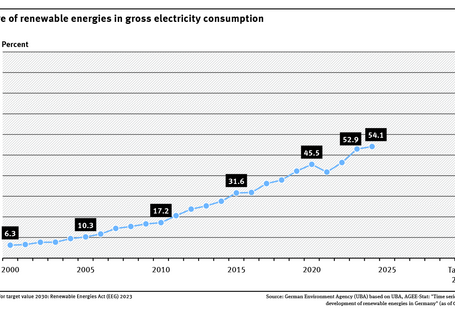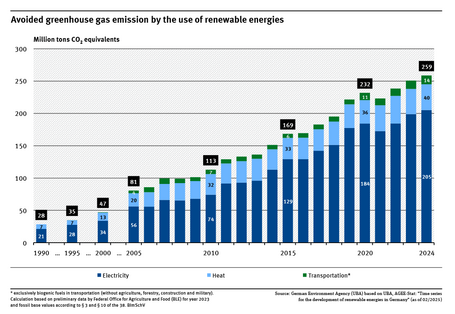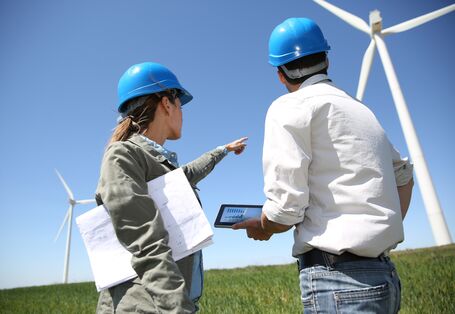Renewable energies continue to pick up speed in 2023

The total share of renewable energies in energy consumption (electricity, heat and transport) rose to 22 per cent in Germany in 2023. In 2022, this share was at 20.8 per cent. This positive development was the result of a growth of renewables in the electricity and heat sector while overall energy demand declined.




